Mandatory evacuation of children: what the Cabinet of Ministers forgot about
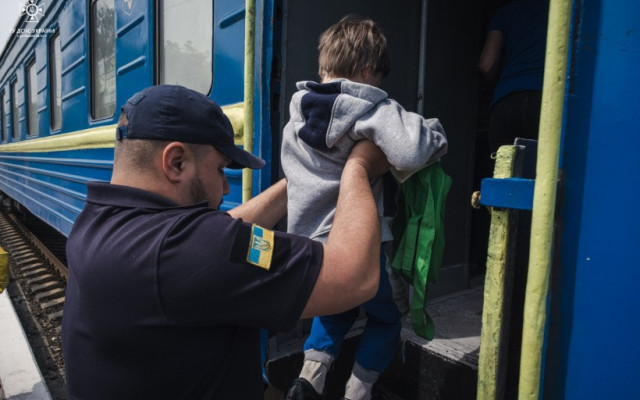
The forced evacuation of children by the decision of administrations from settlements located in the territories of active and possible military (combat) operations is complicated by the negative attitude of parents.
To address this problem, the Cabinet of Ministers of Ukraine submitted to the Verkhovna Rada a draft law No. 12353 of 23.12.2024 «On Amendments to Certain Legislative Acts of Ukraine on the Settlement of the Issue of Mandatory Evacuation».
The Government notes that there is a need to clarify the tasks and specify the powers of public authorities in carrying out measures to evacuate children under martial law. Also, the implementation of martial law measures has highlighted a legal gap in the legislation regarding the prohibition or restriction of entry (entry) and stay of the population in settlements from which mandatory evacuation is carried out under martial law.
It is proposed that mandatory evacuation can be both general and partial for certain categories of the population and other categories of the population by decision of state (military) administrations.
The Committee of the Ukrainian National Bar Association on Human Rights Protection, which analyzed the draft, noted that the concept of partial evacuation is not new and is mentioned in the current Article 33 of the Civil Protection Code as a type of evacuation carried out to remove categories of the population who, due to age or health condition, are unable to take measures to preserve their lives or health on their own in the event of an emergency, as well as persons who, in accordance with the law, care for (serve) such persons. Partial evacuation may also be carried out for other categories of the population by decision of the bodies and officials specified in part three of the said article.
But, according to lawyers, the use of this type of (partial) evacuation in the context of compulsory evacuation of children under compulsory order may lead to the threat of local implementation of these measures in relation to children, when a particular body is sometimes vested with excessive powers under martial law and lack of time, for example, mistakenly decides to partially compulsorily evacuate children immediately under compulsory order. This will have critical consequences in the context of limited access to justice and legal aid in the evacuation area (zone).
The draft law does not contain criteria and deadlines for the early introduction of mandatory evacuation in the area of possible hostilities, which creates uncertainty in this regard and opens the way for possible abuse in its application.
Regarding the mandatory evacuation of children, on the one hand, amendments are proposed to Article 33 of the Civil Protection Code and Article 15 of the Law «On the Legal Regime of Martial Law», and on the other hand, amendments to Article 170 of the Family Code and amendments to Article 14 of the Law «On Child Protection».
In the first case, it is stated that the mandatory evacuation of the population is carried out from settlements located both in the territories of active and possible hostilities, which are included in the relevant list. In the second case, one of the parents or other legal representatives is obliged to personally ensure the escort of children to safe areas if the authorized body decides to conduct a mandatory evacuation of children from settlements located in the territories of active military (combat) operations during martial law.
This creates a gap whereby a child is accompanied by parents (persons in loco parentis) or other legal representatives in the event of a mandatory evacuation of children from the territory of active hostilities. This is not provided for in the case of such evacuation from areas where hostilities are possible.
At the same time, the first case states that compulsory evacuation of children is carried out by guardianship and custody authorities with the involvement of the National Police to ensure the protection of public safety and order, and from the territory of active hostilities - only by police officers authorized by the decision of the head of the relevant body or unit of the National Police, without the accompaniment of parents (persons in loco parentis) or other legal representatives. The presence of parents (persons in loco parentis) or other legal representatives is not required in any of these cases.
In the case of mandatory evacuation of children from the territory of active hostilities, it is envisaged that children in safe areas will be transferred exclusively to guardianship and custody authorities, and no further transfer of children from the territory of possible hostilities is envisaged.
Therefore, the draft law does not provide for the transfer of children to parents or relatives after evacuation from the territory of hostilities and does not establish a mechanism for returning children to their families.
The UNBA Committee is convinced that the forced evacuation of children can cause a negative reaction from parents or guardians, especially in the absence of proper legal control or due to a lack of trust in the authorities. In addition, if the evacuation of children is not organized properly, it may result in violations of the child's rights to mental and emotional well-being. And the lack of proper control and insufficient legal regulation of evacuation may lead to violations of the child's rights to safety and protection. Inadequate regulation of the process of forced evacuation can lead to legal errors and legal consequences that will call into question the legality of such actions.
The full list of comments and suggestions to the draft law No. 12353 can be found here.
Popular news

Discussion
Why lowering the age of marriage lacks legal logic
Although until 2012 there was a provision in family law that allowed children to marry from the age of 14 under certain circumstances, its return to Ukrainian law would contradict international obligations and the logic of criminal law.
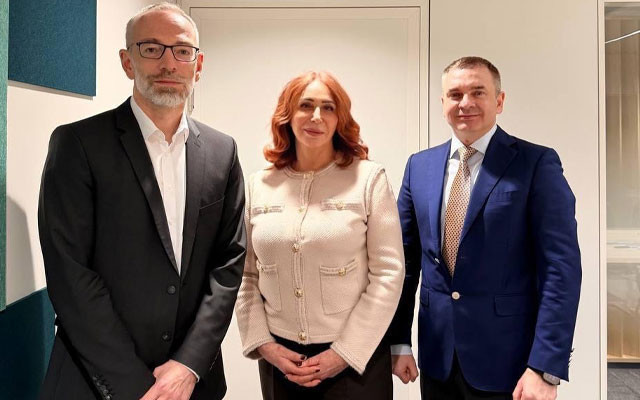
European integration
Open dialogue between the UNBA and the European Commission on the path to EU
The Ukrainian National Bar Association held a working meeting in Brussels with Mr Wolfgang Nozar, Head of Unit for Governance, Rule of Law and Financial Assistance, Directorate-General for Enlargement and Eastern Neighbourhood (DG ENEST), European Commission.

Self-government
A report on Ukrainian advocacy was presented in the European Parliament
Can a shadow report on advocacy replace the political framework of the Roadmap on the rule of law with demands for the restructuring of self-government? Where is the line between accountability and the seizure of institutions? And how can we respond to narratives with data rather than impressions?
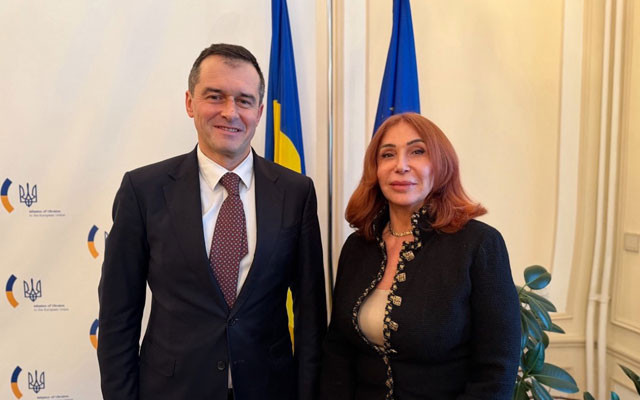
European integration
UNBA and Ukraine's representation to the EU have synchronized their priorities
On February 5, in Brussels, the President of the UNBA, BCU Lidiya Izovitova held a working meeting with the Ambassador Extraordinary and Plenipotentiary of Ukraine, Representative of Ukraine to the European Union Vsevolod Chentsov.
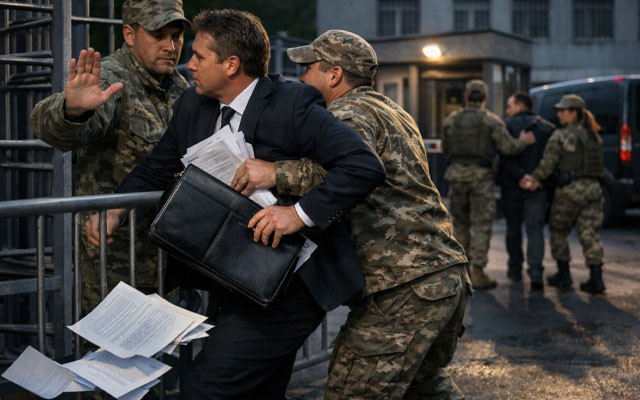
Guarantees of the practice of law
Proceedings opened following attack on advocate in Dnipro
The Committee for the protection of advocates' rights and guarantees of legal practice of the UNBA appealed to law enforcement agencies in connection with an advocate's report of an attack while performing his professional duties. The information was entered into the Unified Register of Pre-trial Investigations and a pre-trial investigation was initiated.
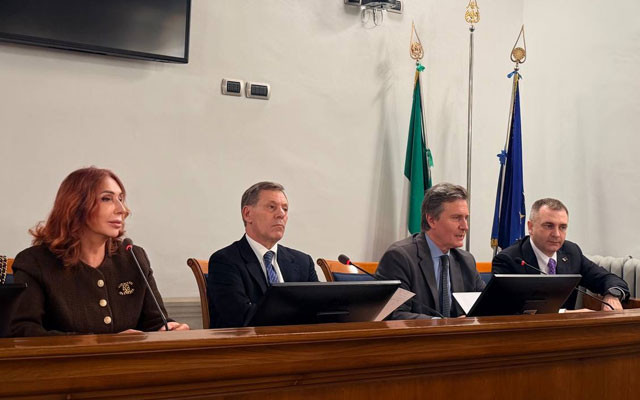
Interaction
«With us — to Europe»: Italian advocacy supports UNBA initiatives
On January 30, a meeting was held in Rome between a delegation from the Ukrainian National Bar Association and the National Bar Council of Italy (Consiglio Nazionale Forense, CNF) on the standards and practices of the legal profession and their significance for Ukraine's European integration process.
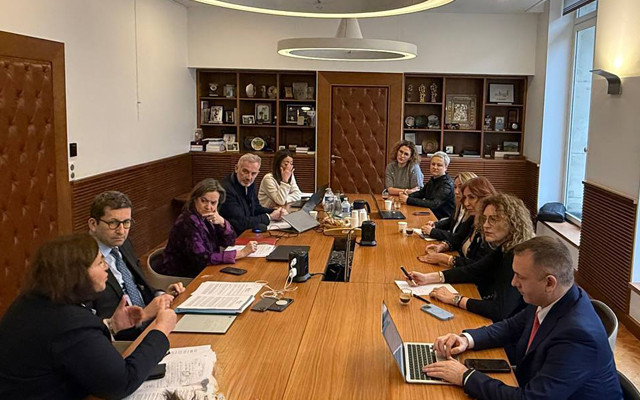
Interaction
France confirms cooperation with UNBA on reforms in the field of the rule of law
On January 29, a working meeting between representatives of the Ukrainian National Bar Association and the French National Bar Council (Conseil National des Barreaux, CNB) took place in Paris.
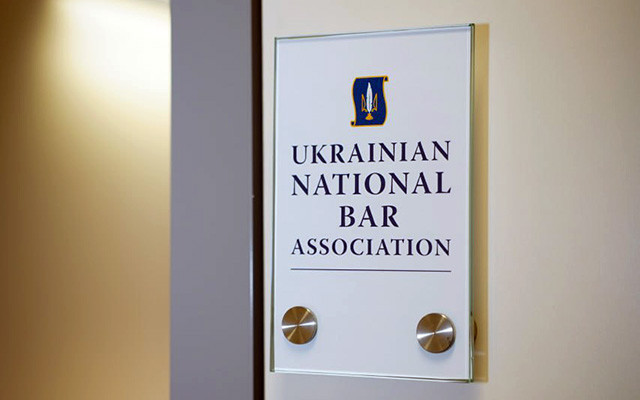
Abroad
UNBA office opens in EU capital
To strengthen the institutional presence of the Ukrainian advocacy community at the European level, an office of the Ukrainian National Bar Association has been opened in Brussels (Belgium), which will serve as a permanent platform for dialogue with European partners.
Publications

Volodymyr Matsko Extradition as a systemic form of rights violations

Victoria Yakusha, Law and Business The anti-corruption vertical cannot «take care» of the Bar as an institution, - acting head of the HQDCB

Censor.net Protecting advocates – protecting justice: addressing concerns about the new law

Ihor Kolesnykov A BRIEF SUMMARY REGARDING THE APPLICATION OF THE ORDER ON EXTENDED CONFISCATION IN LATVIA REGARDING FINANCIAL ASSETS OF…

Valentyn Gvozdiy WORKING IN A WAR ZONE

Lydia Izovitova Formula of perfection

Sergiy Vylkov Our judicial system is so built that courts do not trust advocates

Iryna Vasylyk Advocacy in the proclamation of Independence of Ukraine
